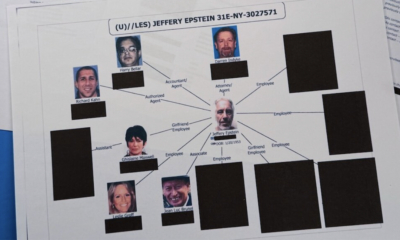immigration Politics
Trump’s DOJ Pushes Controversial Plan to Strip Citizenship From Naturalized Americans
In a sweeping and controversial move, the Trump administration has quietly escalated efforts to strip U.S. citizenship from naturalized Americans with criminal records. A newly released Justice Department memo, dated June 11, directs federal attorneys to prioritize civil denaturalization proceedings—a decision that could impact millions of immigrant Americans and reignite national debates on race, equity, and due process.
The memo outlines ten categories of naturalized individuals targeted for possible denaturalization. These include those convicted of war crimes, violent offenses, gang activity, and financial or medical fraud. But legal experts warn that the scope of the directive could stretch far beyond hardened criminals, raising concerns about due process and the creation of a “second class” of American citizens.
Civil Courts, Fewer Rights
The most striking feature of this denaturalization push lies in the way it’s being executed: through civil litigation rather than criminal prosecution. That legal route means individuals do not have the right to a government-appointed attorney, and the burden of proof is significantly lower.
According to the Department of Justice, the move will help “protect national security and public safety” by targeting those who obtained citizenship fraudulently or who pose an ongoing threat. But immigrant rights groups say it opens the door to abuse, especially in an already strained immigration system marked by record-high detention deaths and rising deportation orders.
Who’s at Risk?
The memo puts nearly 25 million foreign-born U.S. citizens on alert. Although the official language emphasizes “serious offenses,” denaturalization can now apply to cases of alleged misrepresentation on immigration forms—an ambiguous standard that has historically been applied inconsistently.
US Halts Student Visas, Plans Expanded Social Media Checks in Latest Crackdown on Foreign Students
One recent case involved Elliott Duke, a UK-born U.S. military veteran who was convicted of distributing child sexual abuse material. He lost his citizenship earlier this month for failing to disclose his past during the naturalization process. While few will defend Elliott Duke’s actions, civil liberties advocates warn that this could be the beginning of a slippery slope.
A Broader Cultural Shift
This denaturalization campaign is part of a broader ideological shift in the DOJ under Trump. The department’s civil rights division—once dedicated to fighting racial discrimination—is now being used to roll back diversity, equity, and inclusion (DEI) programs. It is also targeting universities and public institutions over race-conscious policies.
Staff morale has reportedly plummeted. NPR reports that 70% of the division’s attorneys have resigned since January, citing ethical concerns and the politicization of their mission.
Critics argue that the Trump administration’s new policy marks a turning point in U.S. immigration law. While natural-born citizens cannot be stripped of their status, naturalized Americans may now face the threat of denaturalization for offenses ranging from serious crimes to paperwork mistakes, without the full protection of due process.
For millions who came to the U.S. in search of a better life, the message is chilling: citizenship, once earned, may no longer be permanent.







































